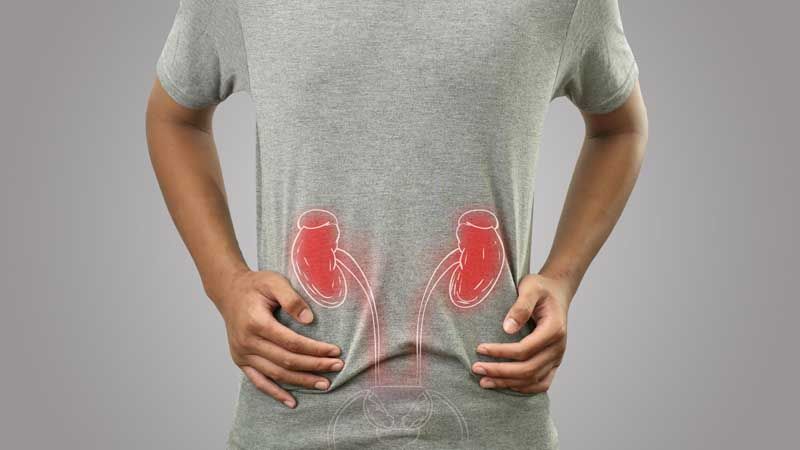Can Too Much Use Of Pain Killers Damage Your Kidneys?
- 39 months ago
Many people who suffer from severe pains and aches rely on painkillers to provide relief, but very few people know that these painkillers can be hurting their kidneys without them even knowing it.
The kidneys are vital organs that purify the blood and flush out toxins in your body, so you will definitely want to take care of them by only using painkillers that don't negatively affect your kidneys; if not, avoid them altogether other ways to manage your pains. Here's more on why you should do just that!
Causes Of Kidney Failure
Painkillers' side effects are not often discussed, but they can be very dangerous. Chronic kidney problems can be caused by the overuse of painkillers, as well as by other conditions such as diabetes and high blood pressure.
Kidney disease is a serious condition that can lead to kidney failure, and analgesic nephropathy is a type of kidney damage caused by painkillers. Painkiller medication for more than ten days in adults or five days in children may increase the risk of developing this type of kidney problem.
Signs And Symptoms Of This Condition
Painkillers' side effects can damage your kidneys without you even knowing. Early signs and symptoms of chronic kidney problems include:
- Fatigue
- Weakness
- Weight loss
- Decreased urination
- Nausea
- Vomiting
- Chest pain
- Difficulty breathing as the condition progresses.
If you experience any of these symptoms, please seek medical attention immediately.
Chronic kidney disease is often associated with high blood pressure or diabetes. It is very important to monitor your blood pressure levels and control your blood sugar if you are on a regimen of prescription pain killers, as they are both linked to this serious health concern.
Must check: 8 golden rules to take care of your kidneys
What Causes Analgesic Nephropathy?
Analgesic nephropathy is caused by prolonged painkillers, such as aspirin, ibuprofen, and naproxen. These painkillers can damage the kidneys and lead to kidney failure.
Effects:
- The kidneys may start leaking protein in the urine or not produce enough urine.
- The person may feel sick, experience weight loss, or get infections more often than usual.
- Some people also develop high blood pressure from using these medications for a long time.
- A doctor will test to see if there are any kidney problems before starting treatment for analgesic nephropathy (often just stopping taking the medication).
Also check: Yoga for urinary system disorders/UTIs
What Happens When Kidneys Fail?
Kidney failure does not happen overnight. It results from years of chronic kidney disease caused by diabetes, high blood pressure, or some other medical condition. When your kidneys are damaged to this extent, they can no longer properly remove waste from your body, and you will start to show signs of it in many different ways, such as nausea, vomiting, shortness of breath, increased thirst, and changes in urination habits. Many people don't even know they have kidney disease until they experience these symptoms.
Focus On Steps That Can Be Taken To Manage This Condition
Reduce your use of painkillers such as Aspirin, Acetaminophen, Ibuprofen, and Naproxen sodium. The more often you take an opioid, the more it will affect your kidneys, so limit your intake as much as possible and try other methods to cope with pain.

- Find a healthy way to manage stress, such as talking with a friend or getting a massage. Stress can also strain your kidneys; relieving it can help keep your kidney health strong.
- Eat well-balanced meals that include lots of fresh fruits and vegetables for fiber and water for hydration, which will help flush toxins from your body without damaging the renal cells in your kidneys.
- Drink plenty of fluids to avoid dehydration because dehydration also puts stress on your kidneys.
- Get enough sleep every night because not sleeping enough can be harmful to all parts of your body but is especially harmful to your kidneys because they need rest too! If you have been taking opiates long-term, ask your doctor about weaning off them gradually by tapering the dose until none are taken.
- Finally, if you're experiencing symptoms that indicate this condition, such as increased urination or darker urine, speak to your doctor immediately.

Conclusion
We all know that painkillers are great for when we have a headache or are in pain from an injury. However, most of us don't know that painkillers can damage our kidneys without us knowing. They can cause the kidneys to decrease production and ultimately lead to kidney failure. That's why it's important to consult your doctor before taking any type of over-the-counter medication if you think it might hurt your body somehow.








